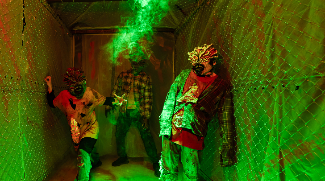Ooops! something went wrong!
We are sorry but the page you requested cannot be found.
It seems that the page you were trying to reach doesn't exist
anymore, or maybe it has just moved. The best thing to do is start from the home page.
If problem persist please email
webmaster@connector.ae
YOU MAY LIKE
.jpg) 19 December 2025
19 December 2025
Concerts to Christmas plays, here's what's in store this weekend
.jpg) 12 December 2025
12 December 2025
Here's Connector's highlights of some of the must-see events this weekend
 11 December 2025
11 December 2025
Celebrated star Hauser will headline a special night at the Abu Dhabi Festival 2026 on 2 May
.jpg) 05 December 2025
05 December 2025
Check out Connector's roundup of some of the best events to catch up on this week in Dubai.
.jpg) 29 November 2025
29 November 2025
Celebrations, live music performances, sporting events, and so much more await you in Dubai this weekend.
 31 October 2025
31 October 2025
From spooky Halloween-themed events to music, sports and more, this weekend in Dubai promises plenty of fun. Check out Connector's highlights